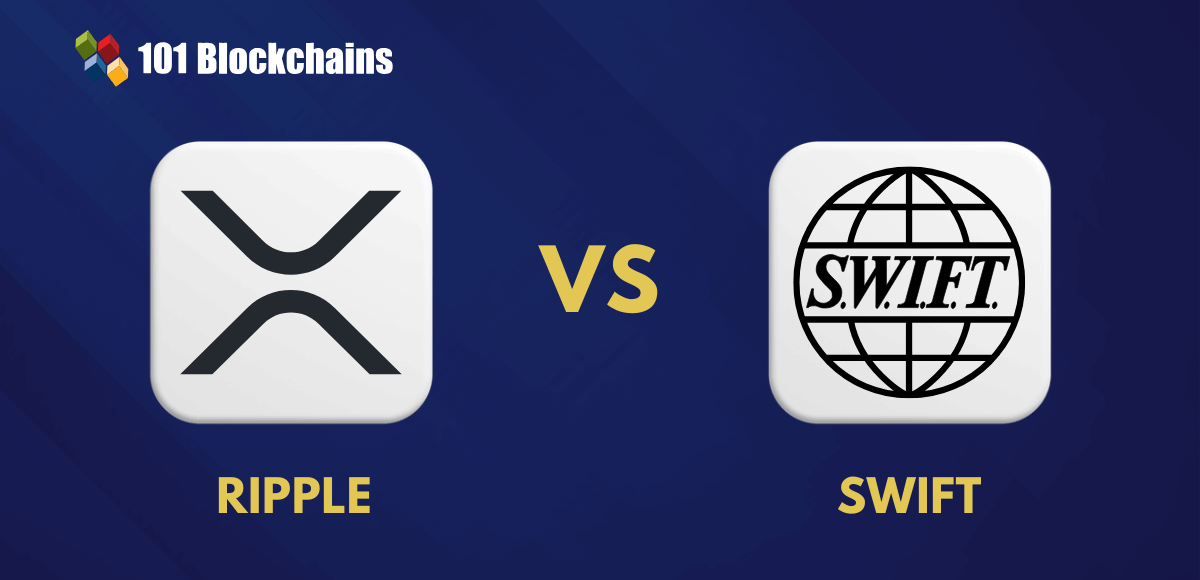Learn how blockchain truly works, master key definitions, and uncover what makes smart contracts so "smart." Dive into the fundamentals, gain valuable insights, and start your blockchain journey today!

Comparisons
101 Blockchains
on June 13, 2018
Ripple vs R3: How Is R3 Different From Ripple?
Ripple vs R3 is the latest multi-billion tussle that has found its way into the corridors of justice, even as the two parties continue to send shockwaves in the financial industry. The two blockchain leaders have developed a network that has become increasingly popular for the transfer of payments across borders at minimal fees.
However, a dispute over the ownership of a given amount of cryptocurrency (XRP), threatens to break up a union that had all the hallmarks of success. The two have since turned to the judicial system as they look to find an amicable solution to the ongoing standoff.
Before we look at the genesis of the Ripple vs R3 tussle, let’s first understand who the main players in the tussle are.
R3 Vs Ripple: Key Players Background
R3 casts itself as a distributed database technology company that leads a consortium of 200 firms in research and development in the financial system. The company is headquartered in New York and was founded by David E. Rutter in 2014.
Ripple, on the other hand, is a name for both cryptocurrency XRP and open payment network that financial institutions and people use to transfer funds in the form of Ripple. Simply put it is a real-time gross settlement system, developed by Ripple Company on an open source internet protocol.
Ripple Vs R3 Purpose

Image Credits: Ripple
The company behind Ripple cryptocurrency is seeking to address the need for money flowing freely. The company purports to enable secure, instant and nearly free global financial transactions of any size without any chargebacks. Ripple uses cryptocurrency and blockchain technology to make international wire transfers and other forms of cross-border exchange, faster and cheaper.
R3, on the other hand, is building blockchain technology to transform the way people do business. Unlike Ripple, the company does not use cryptocurrency but a digital ledger to make multiple banking functions more efficient.

Image Credits: R3
The company has teamed up with a global network of partners to develop innovative apps for finance and commerce. Its network currently comprises of over 200 companies and regulators in six continents, making it one of the largest collaboration of its kind in the blockchain space.
The joint consortium efforts has resulted in an open source distributed ledger platform dubbed Corda. The platform has been designed to handle complex transactions while restricting access to transaction data.
R3 Vs Ripple Partnership and Legal Squabble
Ripple and R3 entered into a partnership last year. Under the terms of the agreement Ripple was to gain access to R3s consortium of banks. In return, Ripple agreed to sell R3 5 billion XRPs at a price of $0.0085 per unit. After the signing of the agreement, XRPs price went on to hit $0.26 a unit making the contract worth over $1 billion.
Ripple unilaterally canceled the contract after seeing the value of XRPs tokens had skyrocketed. The move did not go well with R3, which sued the company accusing it of failing to fulfill its requirements according to the contract.
Ripple on its defense through Chief Executive Officer Brad Garlinghouse insists that R3 knowingly deceived Ripple regarding the number of banks that were about to leave the consortium. The company alleges that prior to the signing of the agreement R3 touted membership partners like Goldman Sachs and JP Morgan that left the consortium afterward.
Ripple insists that R3 misrepresented its resources solely to induce agreements that would benefit it. R3 on its part maintains that Ripple’s decision to terminate the contract was illegal and was only motivated by the increased value of XRP.
Ripple vs R3 tussle in courts hangs in the balance as it could go either way. It is too early to identify who will be the winner in the multi-billion standoff.
*Disclaimer: The article should not be taken as, and is not intended to provide any investment advice. Claims made in this article do not constitute investment advice and should not be taken as such. Do your own research!




